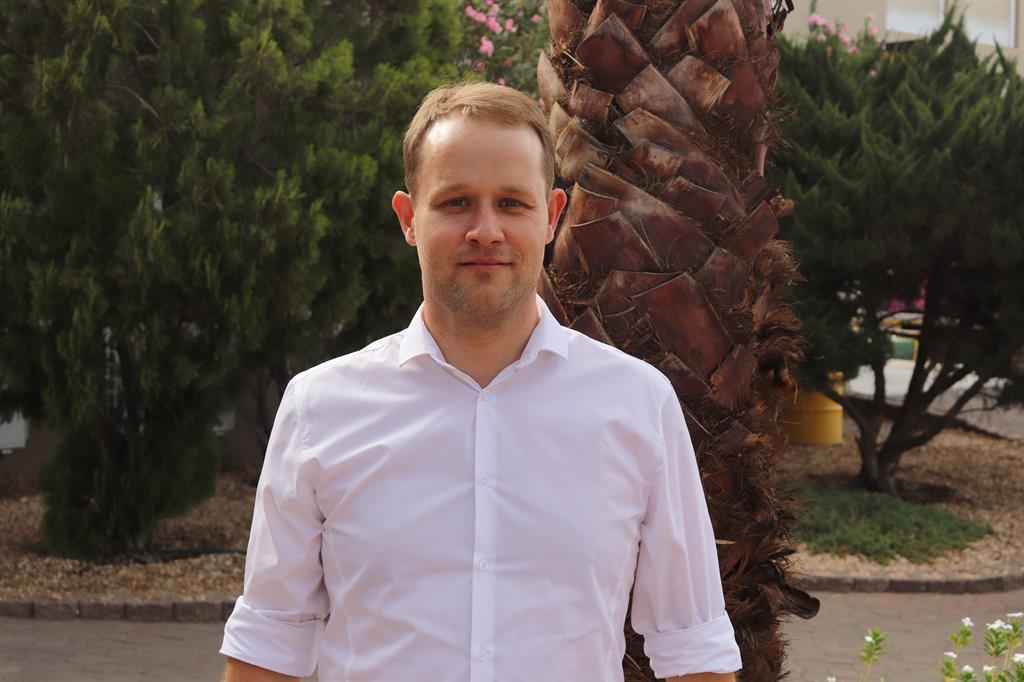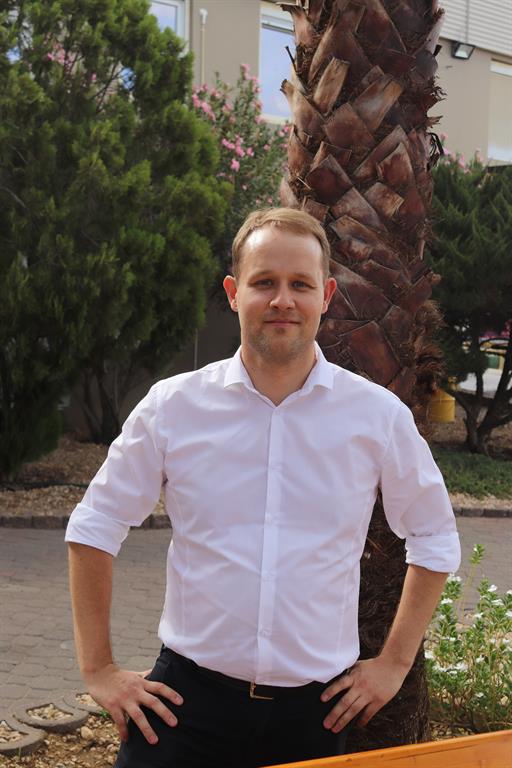Don’t waste your e-waste
The chief executive officer of NamiGreen E-waste, Per E. Hansen, has generated a way for Namibian companies and individuals to recycle their electronic waste to create a safer and environmentally responsible community.
Mariselle Stofberg
“Recycling is important for all, not just companies. If we don’t want to ‘live in a trashcan,’ recycling is for us.”
The chief executive officer of NamiGreen E-waste, Per E. Hansen, believes recycling is the responsibility of each and every person in the community.
NamiGreen is an electronic waste (e-waste) management company that was founded in 2018 after taking over existing e-waste operations in Namibia dating back to 2013.
Not only is Hansen passionate about his environment and recycling, but he is also a technology guru.
“I have been an entrepreneur in the information technology sector for 19 years. I taught myself software programming at the age of 12 and was building software and websites for clients when I was just 15,” he says.
He decided to pursue a master’s degree in finance and strategic management from the Copenhagen Business School when he turned 27.
“When I was studying at the business school, I had the chance to start up a company in the nanotechnology industry, which I later sold to three remaining founders. Today I am 37 and have invested in a few IT businesses as well as working with recycling at NamiGreen E-waste.”
Hansen was born in Denmark, not too far from the capital city, Copenhagen.
“I see the person I am today as a sum of the choices I made, which were either inspired by other people, education or experiences. The decision to become an entrepreneur stems from wanting freedom to execute ideas and dreams.”
For him, recycling offers a nice combination of doing something good and necessary for the environment but also being able to create jobs and a business.
“The challenges within this field are educating people about recycling, the vast distances we have here in Namibia as well making it all economically feasible. If we don’t do something about it, the future generations will inherit a trash-can and at present, make our own quality of living deteriorate,” Hansen added.
Hansen believes in being honest, doing good and working hard.
“Nothing comes easy in this world, so we have to work and push for it. At least, that is how my parents raised me. Businesswise, one needs to collaborate with people that support you and your visions.”
His passion to make a change for himself and the people around him is what gets him up in the morning and drives him throughout the day.
Apart from playing a critical role in protecting the environment, Hansen enjoys exercise and likes to swim.
“I enjoy good food and wine and generally read one to two hours per day.”
Being from Denmark and running a company in Namibia, Hansen has seen various differences between the two countries.
“Obvious differences are availability of technology, low unemployment rates, and on average six to ten times higher wages, as well as fewer working hours in Denmark. It can sometimes feel like a rat race there though. Namibia, however, has a pleasant climate, and people in general know how to enjoy life more, which is something we can learn from in Denmark.”
Hansen further added that in Denmark, they are educating children on recycling all the way from primary school into adulthood.
“That instils a sense of responsibility in most people, which is half the work of recycling. People still litter in Denmark but I believe most people know it is wrong, hence the overall amount of littering goes down.”
They also have a polluters-pay principle in most of Europe.
“That principle is in some parts inspired by the Nobel Prize-winning British economist Ronald Coase. In essence, it means the origin of the polluter must pay for whatever pollution he/she caused. That will help minimise pollution as the polluter wants to avoid any additional costs. For my industry, electronic waste recycling, Namibia does not have the polluter-pays principle yet, which is why you see people throwing electronics in the streets, in the trash and more,” he added.
“There is no effective way of getting rid of your used and broken electronics in the country yet. At NamiGreen we are trying to change that, however. Namibia can and should learn from Europe by implementing the polluter-pays principle.
“My personal goal is to accomplish our mission as a company, which is to be recognised as the leading company that makes an impact on e-waste recycling, not just in Namibia but in Africa. We are well on our way to accomplishing this but we need help from the public, government and companies to put focus on e-waste recycling.”
“Recycling is important for all, not just companies. If we don’t want to ‘live in a trashcan,’ recycling is for us.”
The chief executive officer of NamiGreen E-waste, Per E. Hansen, believes recycling is the responsibility of each and every person in the community.
NamiGreen is an electronic waste (e-waste) management company that was founded in 2018 after taking over existing e-waste operations in Namibia dating back to 2013.
Not only is Hansen passionate about his environment and recycling, but he is also a technology guru.
“I have been an entrepreneur in the information technology sector for 19 years. I taught myself software programming at the age of 12 and was building software and websites for clients when I was just 15,” he says.
He decided to pursue a master’s degree in finance and strategic management from the Copenhagen Business School when he turned 27.
“When I was studying at the business school, I had the chance to start up a company in the nanotechnology industry, which I later sold to three remaining founders. Today I am 37 and have invested in a few IT businesses as well as working with recycling at NamiGreen E-waste.”
Hansen was born in Denmark, not too far from the capital city, Copenhagen.
“I see the person I am today as a sum of the choices I made, which were either inspired by other people, education or experiences. The decision to become an entrepreneur stems from wanting freedom to execute ideas and dreams.”
For him, recycling offers a nice combination of doing something good and necessary for the environment but also being able to create jobs and a business.
“The challenges within this field are educating people about recycling, the vast distances we have here in Namibia as well making it all economically feasible. If we don’t do something about it, the future generations will inherit a trash-can and at present, make our own quality of living deteriorate,” Hansen added.
Hansen believes in being honest, doing good and working hard.
“Nothing comes easy in this world, so we have to work and push for it. At least, that is how my parents raised me. Businesswise, one needs to collaborate with people that support you and your visions.”
His passion to make a change for himself and the people around him is what gets him up in the morning and drives him throughout the day.
Apart from playing a critical role in protecting the environment, Hansen enjoys exercise and likes to swim.
“I enjoy good food and wine and generally read one to two hours per day.”
Being from Denmark and running a company in Namibia, Hansen has seen various differences between the two countries.
“Obvious differences are availability of technology, low unemployment rates, and on average six to ten times higher wages, as well as fewer working hours in Denmark. It can sometimes feel like a rat race there though. Namibia, however, has a pleasant climate, and people in general know how to enjoy life more, which is something we can learn from in Denmark.”
Hansen further added that in Denmark, they are educating children on recycling all the way from primary school into adulthood.
“That instils a sense of responsibility in most people, which is half the work of recycling. People still litter in Denmark but I believe most people know it is wrong, hence the overall amount of littering goes down.”
They also have a polluters-pay principle in most of Europe.
“That principle is in some parts inspired by the Nobel Prize-winning British economist Ronald Coase. In essence, it means the origin of the polluter must pay for whatever pollution he/she caused. That will help minimise pollution as the polluter wants to avoid any additional costs. For my industry, electronic waste recycling, Namibia does not have the polluter-pays principle yet, which is why you see people throwing electronics in the streets, in the trash and more,” he added.
“There is no effective way of getting rid of your used and broken electronics in the country yet. At NamiGreen we are trying to change that, however. Namibia can and should learn from Europe by implementing the polluter-pays principle.
“My personal goal is to accomplish our mission as a company, which is to be recognised as the leading company that makes an impact on e-waste recycling, not just in Namibia but in Africa. We are well on our way to accomplishing this but we need help from the public, government and companies to put focus on e-waste recycling.”






Comments
Namibian Sun
No comments have been left on this article